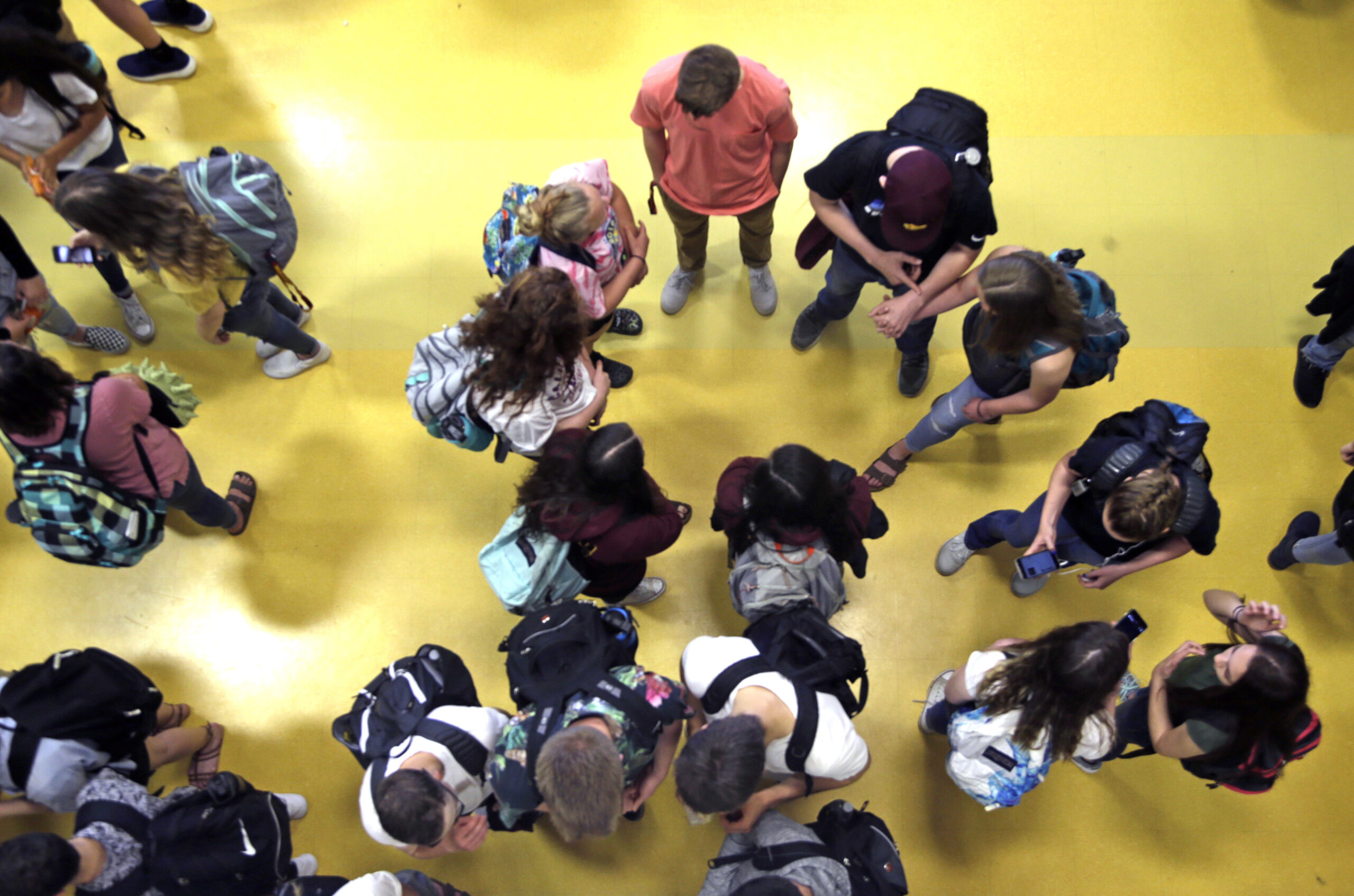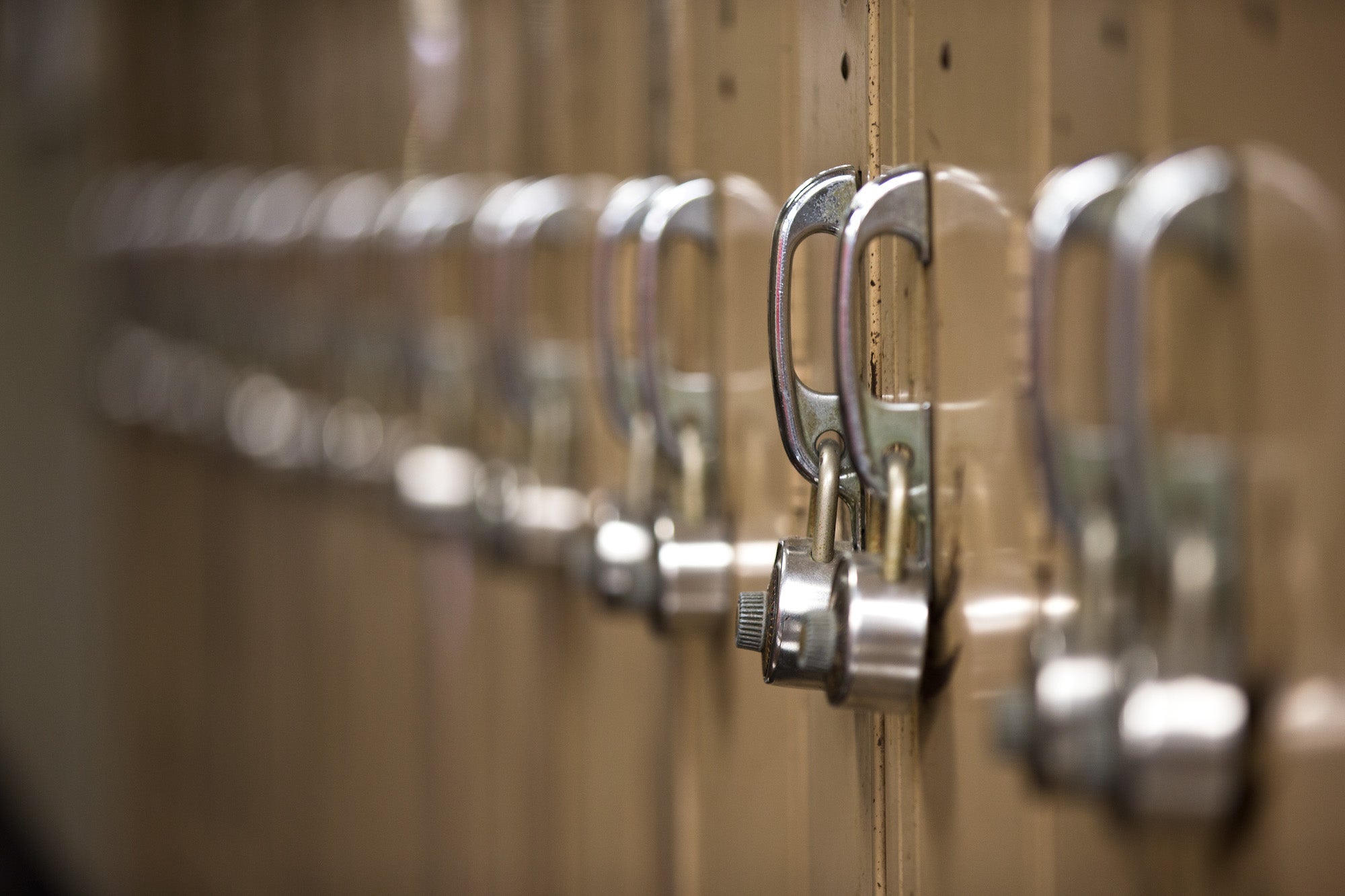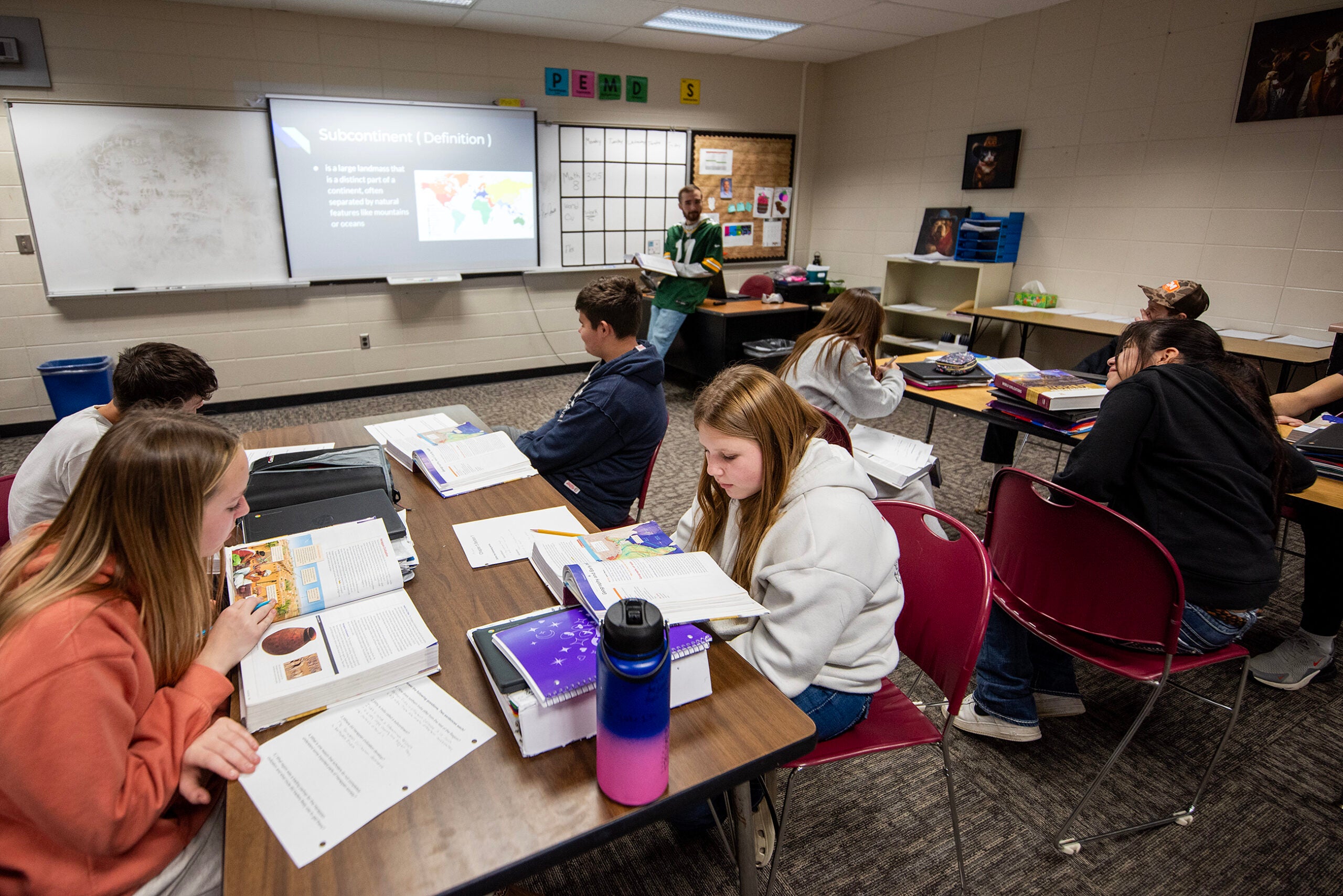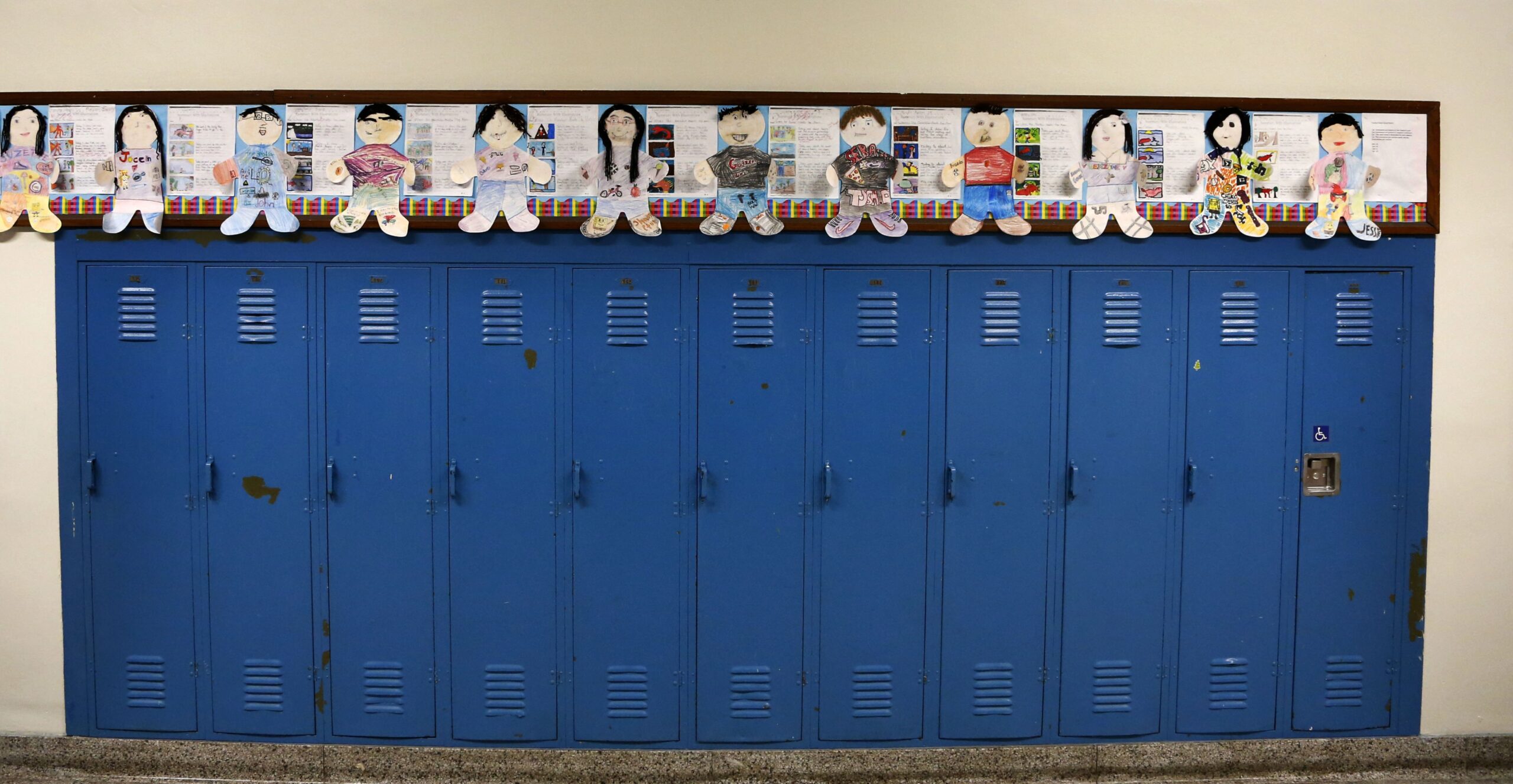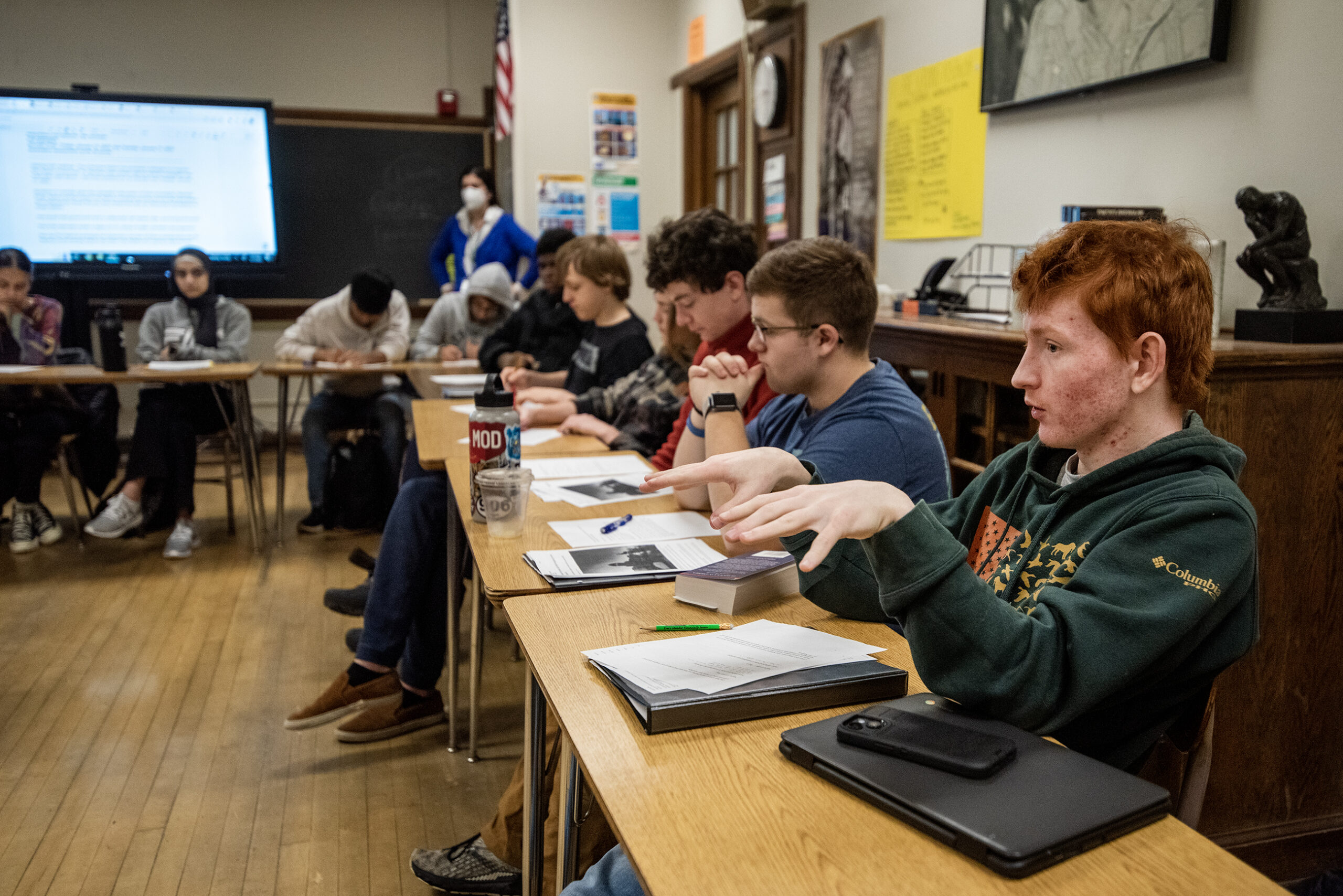Editor’s note: This story is part of an occasional series on youth mental health and Wisconsin’s efforts to address it.
High school hasn’t always been easy for Eva Marquez.
During her junior year at Greendale High School, her home life and school life came to a head.
News with a little more humanity
WPR’s “Wisconsin Today” newsletter keeps you connected to the state you love without feeling overwhelmed. No paywall. No agenda. No corporate filter.
“I have a lot of past trauma in my life,” Eva said. “Junior year was a lot harder. Rigorous coursework, and there was a lot going on with me. I was spread really thin.”
Then Eva found a group she could relate to at school. It’s a nationally-recognized suicide-prevention program called Sources of Strength.
The 26-year-old effort is in thousands of schools across the country and hundreds across Wisconsin.
Advocates point to it as one of the few prevention programs that has research behind it showing it can work.
“There was a lot of turmoil going on in my life, so it was really inspiring and helpful to be in Sources of Strength at that time,” Eva said.
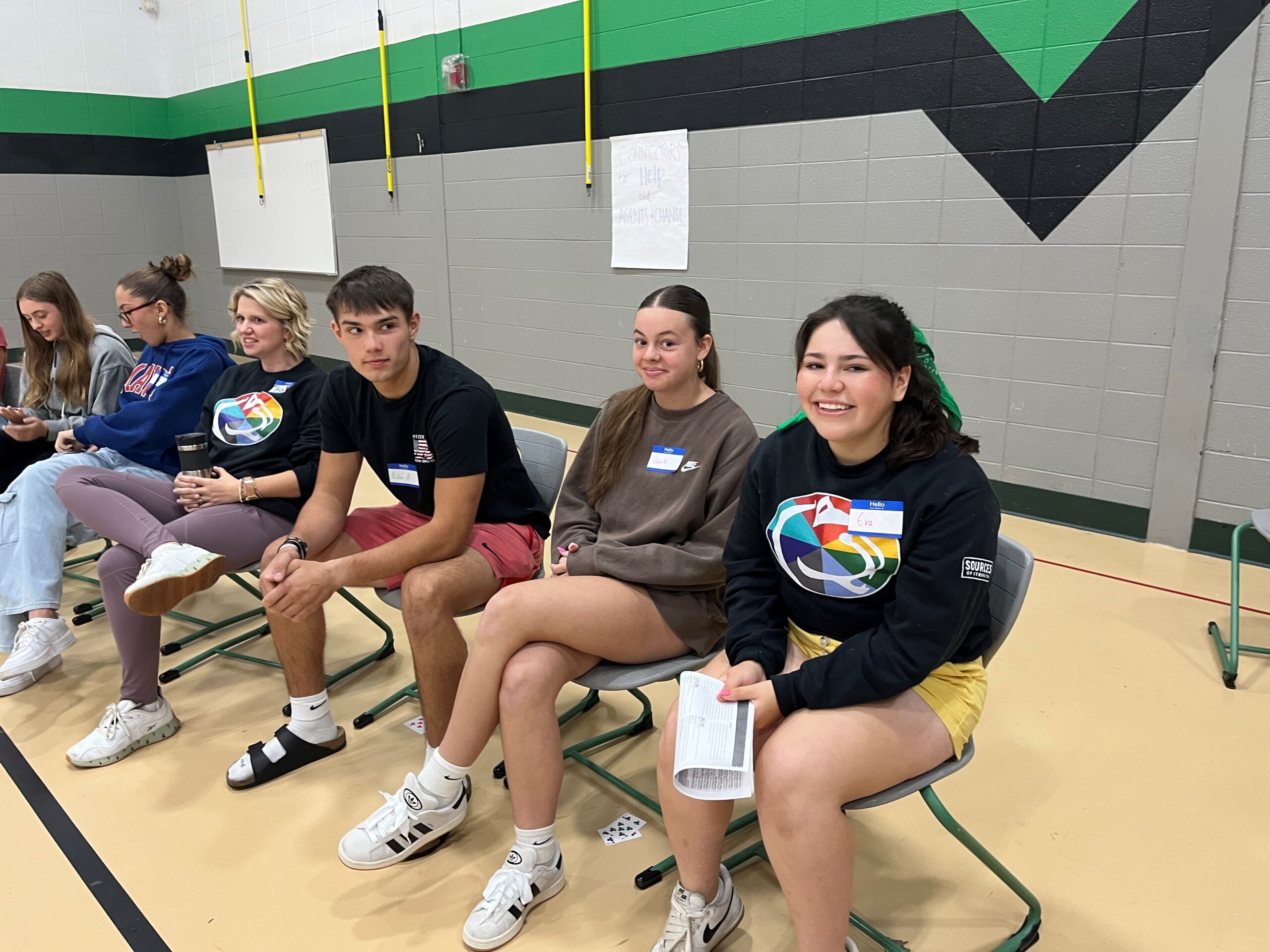
Jessica Holschbach is a science teacher at Greendale High School and an adult advisor for Sources of Strength.
She said the program is “upstream prevention,” meaning it attempts to reach young people before they are in crisis by helping teens focus on the good things happening in their lives.
“We try to give students a kind of toolkit of what to do when they might be in a time of need, rather than trying to process when things are at their peak,” Holschbach said.
The program uses trained peer leaders to model positive behaviors such as help-seeking, healthy coping and identifying trusted adults.
Greendale science teacher Zach Geiger helps advise the Sources of Strength group at the suburban Milwaukee school. He said peer leaders aren’t junior counselors. Rather, they are positive friends and mentors.
“It’s really, really important that the (counseling) work is done by professionals,” Geiger said. “Instead (peer leaders) focus on campaigns that broadcast healthy ways to deal with emotions or difficult times.”
Program helps teens build 8 key ‘strengths’
Mark LoMurray established Sources of Strength in 1998 in Bismarck, North Dakota, while working in juvenile justice as the head of the police youth bureau. There, LoMurray saw too many young people dying by suicide.
Scott LoMurray, who runs Sources of Strength with his father, told NPR in a 2015 interview that they knew teens needed to be part of the program to make it successful.
“We knew we had to have a peer component … to bring teens into the mix,” Scott LoMurray told NPR. “We couldn’t just train adults and expect that to be effective.”
The curriculum is rooted in eight “strengths” that research has shown are protective against suicide risk. They are:
- family support
- positive friends
- mentors
- healthy activities
- generosity
- spirituality
- medical access
- mental health
A three-year study in the American Journal of Public Health that looked at the effectiveness of Sources of Strength found it is the “first suicide prevention program with peer leaders to enhance protective factors associated with reducing suicide.”
Researchers looked at 18 schools — six urban and 12 rural — in Georgia, New York and South Dakota. They found peer leaders were able to convince students to trust and engage with adults and use interpersonal and coping resources.
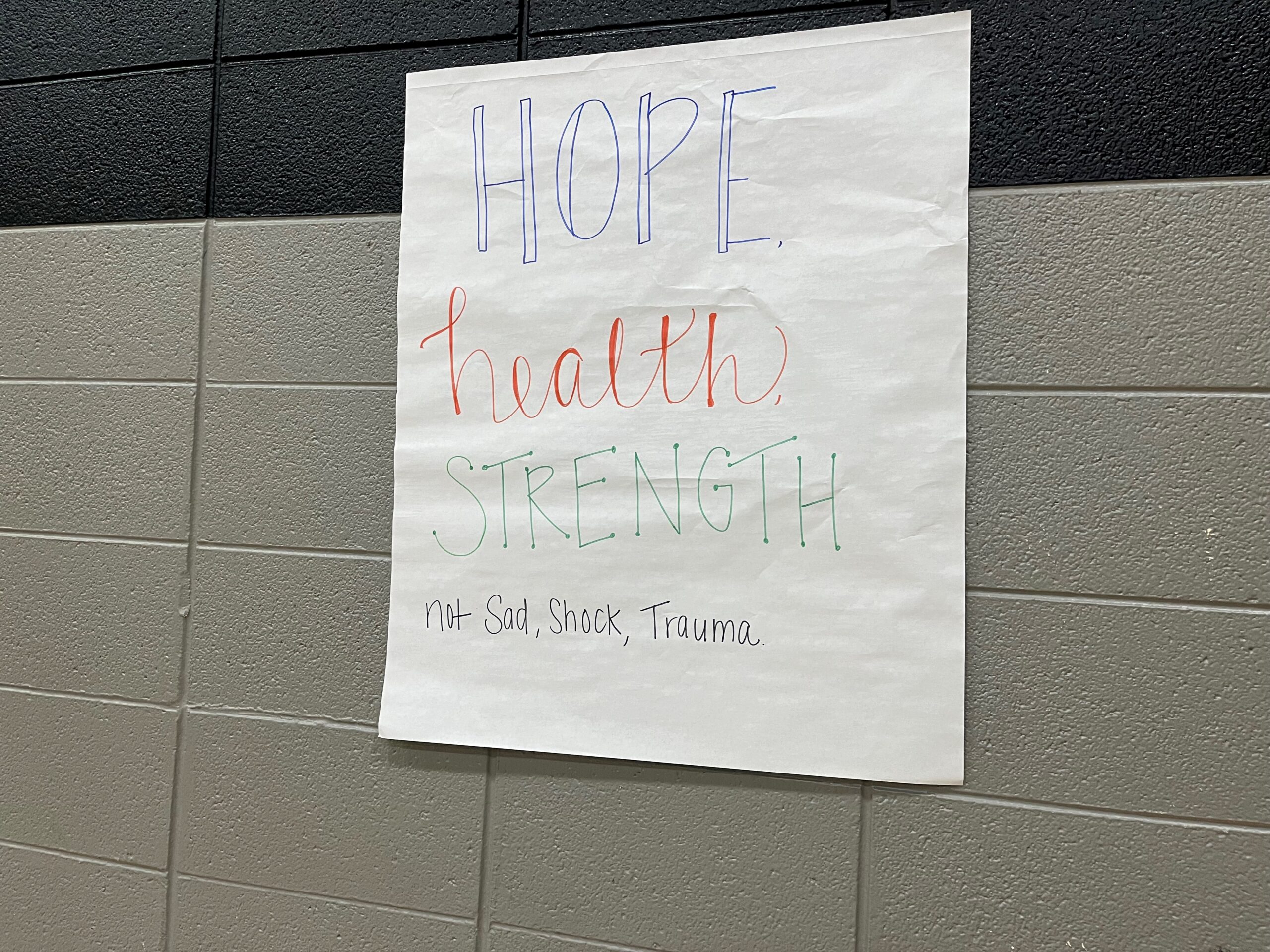
Sources of Strength has been adopted by schools, colleges, churches, detention centers and military bases.
Data from the 2023 Youth Risk Behavior Survey shows 59 percent of Wisconsin high school students have experienced at least one mental health challenge over the past year.
Female and LGBTQ+ students reported a disproportionate number of challenges. Girls were twice as likely to harm themselves as their male counterparts and 67 percent of female students reported experiencing anxiety and 45 percent reported depression.
State Superintendent Jill Underly’s 2025-27 budget request includes $300 million to expand youth mental health programs, including school-based programs like Sources of Strength.
Underly said she’s familiar with the program and has been impressed with the results.
“It is rooted in anti-bullying and making sure that every child at every school has a network,” Underly said. “When you think about isolation and depression, we have to make sure every kid is connected. It’s better for not just their mental health and well being, but also for their academic success.”
Student resources at ‘every lunch table’
In mid-October, about 75 students sat in folding chairs in the Greendale High School gymnasium.
It was the first day of peer training for the Sources of Strength program. Social studies teacher Sarah Walczak jumped into the middle of the circle. She asked each student to throw one of their shoes in the middle of the room.
The students’ job was to find the shoe of a classmate and bring it to them. As they handed their Air Jordans, Asics and Uggs back to their original owners, they also played “two truths and a lie.”
Walczak said the point of the exercise was to make students feel vulnerable, and then connect with a peer.
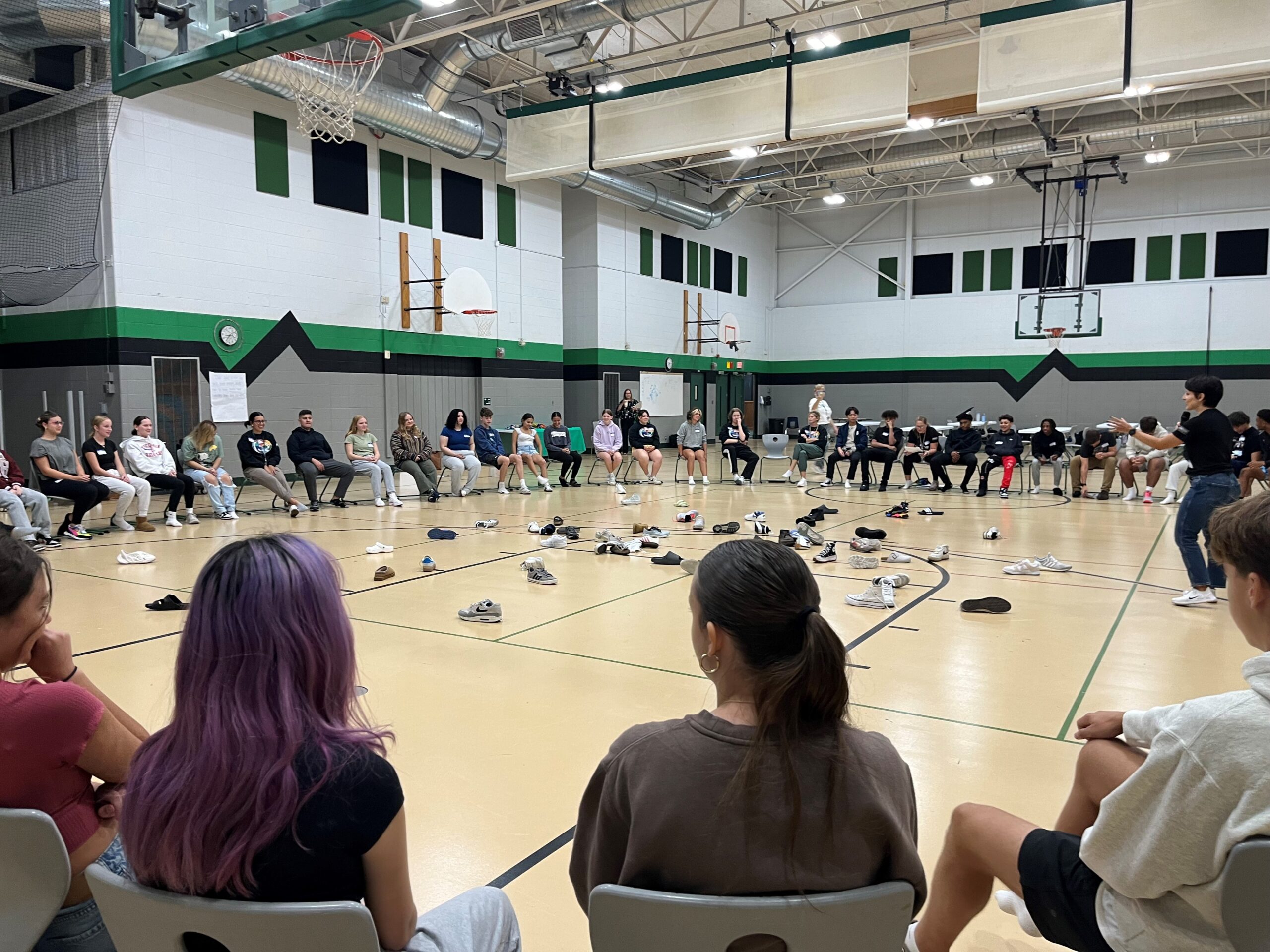
After the game, the students sat back down and talked about the many stresses of high school with Geiger.
Without missing a beat, the students shouted out their top worries.
“Homework.”
“Social life.”
“Athletics.”
“My parents.”
“The future.”
“Cool, any others? How about time management?” Geiger said. “Knock on your head if you’ve struggled with time management.”
The entire circle lifted their arms in a collective knock to the head.
This meeting was the first of 13 throughout the school year. The goal is to have 10 percent of the student body trained as a peer leader. With 75 leaders, that’s about 8 percent of the students at Greendale High School.
The leaders are chosen by teachers and counselors and make up students sitting at “every lunch table,” at the school, said Superintendent Kim Amidzich.
Greendale has been using Sources of Strength for four years. Amidzich said using students to help others is a brilliant idea.
“It’s really focusing on building up that level of hope, and that, in turn, helps kids to be resilient and deal with difficult things,” Amidzich said. “We’ve seen positive results in terms of how kids interact with each other. We’ve seen positive results in terms of interacting across social groups, which is huge, and we’ve also seen results in terms of how well our students behave.”
The study by the American Journal of Public Health found that after just four months, there was “consistent evidence of a positive intervention impact” of peer leaders on the rest of the student body.
This year, Eva is a senior at Greendale High School. She’s back in the group, but as a peer mentor.
At the recent peer training session, she said her own experience with trauma makes it easier to talk to her classmates who might be going through difficult times.
“I really approve of the message that Source of Strength brings out to the school,” Eva said. “I have a really strong relationship with the group, and it has personally helped me in my own mental health struggle. That’s why I always love to keep coming back.”
Where to get help
If you or someone you know is struggling, you can call or text the 988 Lifeline.
The Wisconsin Office of Children’s Mental Health also offers resources for families and young people:
Uplift WI: Anonymous, confidential, support from certified peer specialists. Call 534-202-5438 from noon until midnight.
Teen Line: Teen peer support. Text TEEN to 839-863 from 8 p.m. to 11 p.m. Call 800-852-8336 from 8 p.m. until midnight.
NAMI Teen & Young Adult HelpLine: Peer support for teens and young adults. Text FRIEND to 62640 or call 800-950-6264 Monday through Friday from 9 a.m. until 9 p.m.
Love is Respect: Information, support, and advocacy for young people with questions or concerns about their romantic relationships. Text LOVEIS to 22522. Call 866-331-9474.
Parent Stress Line: Trained volunteer counselors. Call 800-632-8188.
Wisconsin Public Radio, © Copyright 2026, Board of Regents of the University of Wisconsin System and Wisconsin Educational Communications Board.

